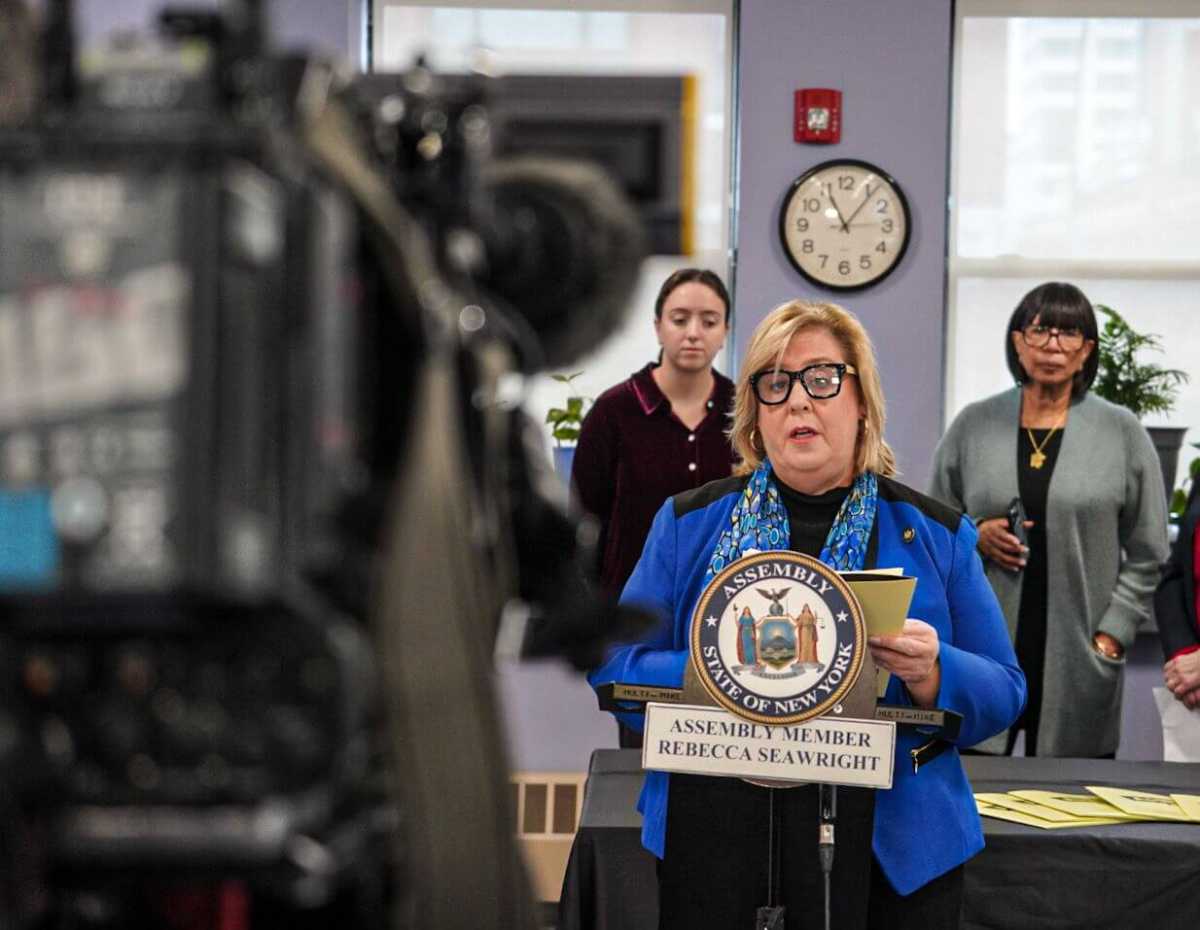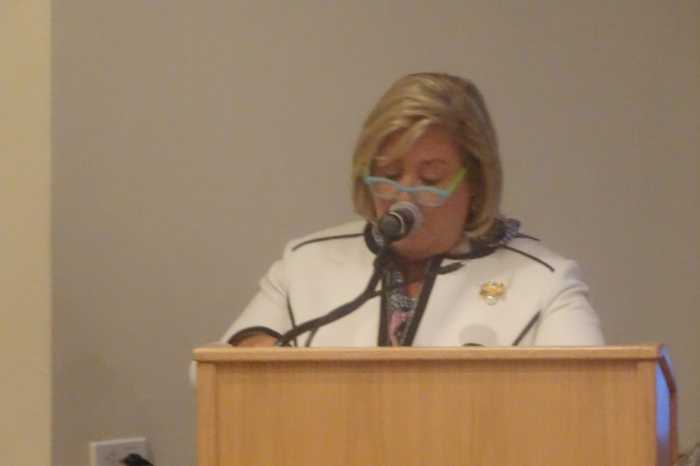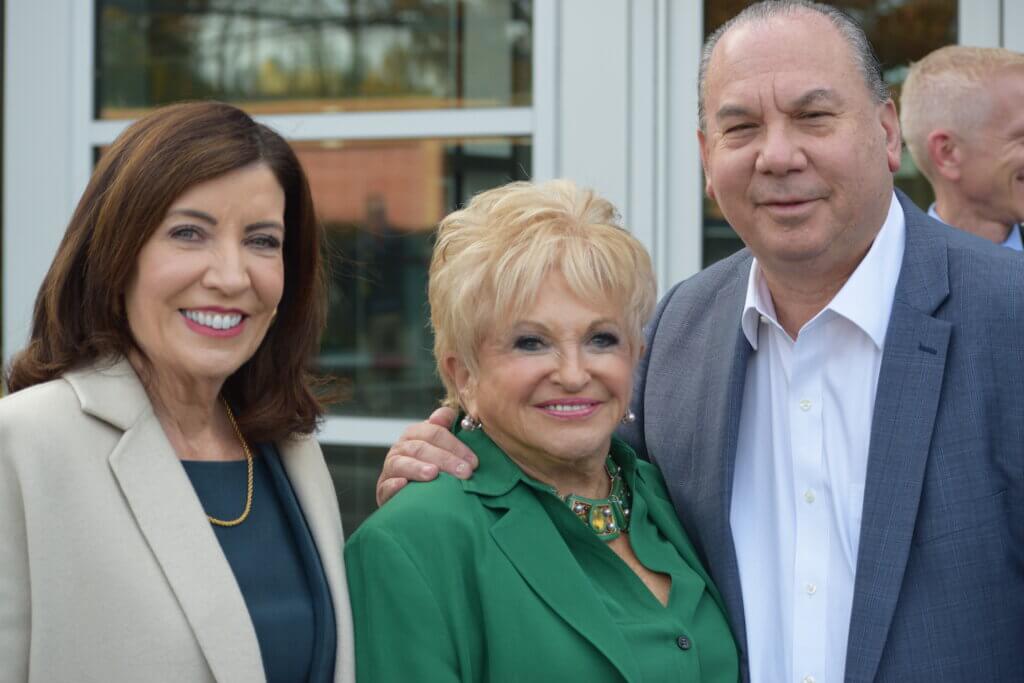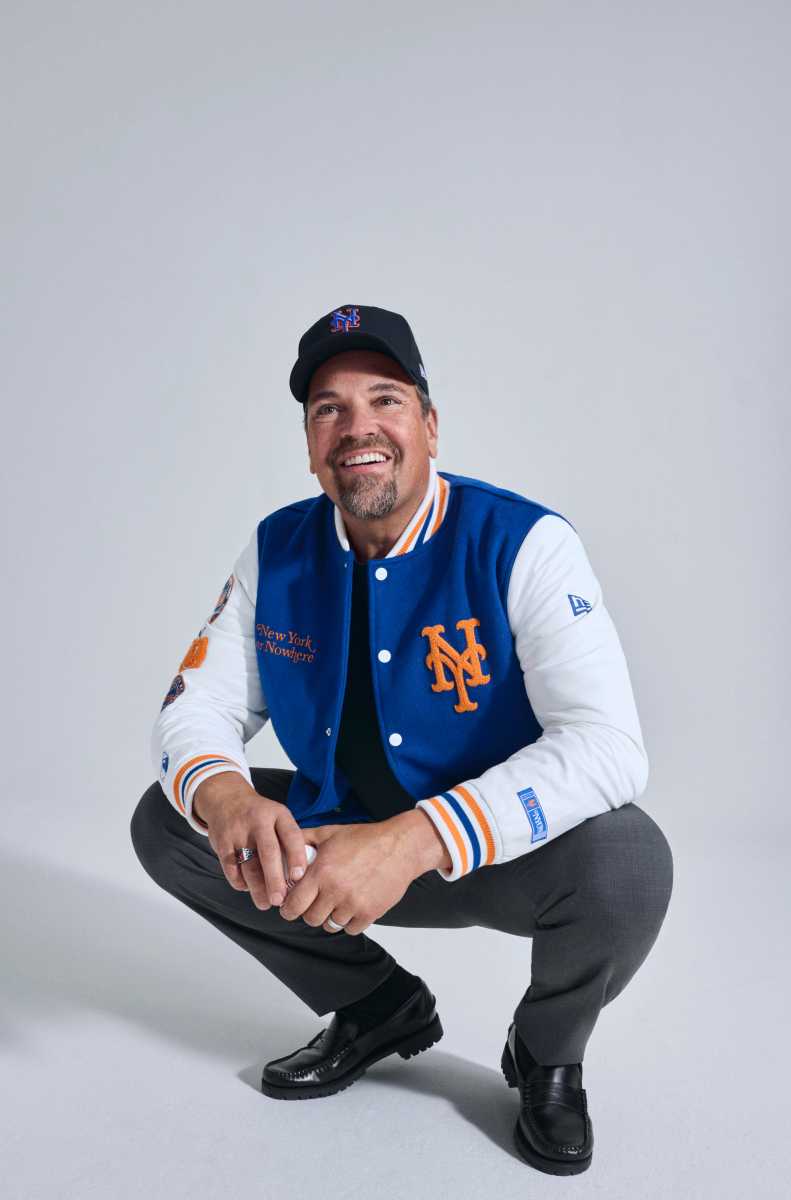New York state lawmakers have failed the thousands of caregivers for people with Intellectual and Developmental Disabilities (I/DD) by not providing them with adequate raises when the new budget deal became official Tuesday, leaders in the largely nonprofit industry claim.
The workers, known as direct support professionals (DSP), currently earn about $16 per hour — a whole dollar more than the minimum wage — and had been advocating for an 8.5% cost-of-living adjustment (COLA) to be included in the budget.
The budget, however, only granted them a 4% wage increase — a number that industry leaders and some elected officials say is insufficient. They argue that the workers are not being paid enough for a difficult job that involves tasks such as helping I/DD patients go to the bathroom, changing diapers and administering medication.
“I am very disappointed,” said Assembly Member Rebecca Seawright, who represents the Upper East Side and serves as the Assembly chair of the People with Disabilities committee. She had held rallies and press conferences calling for an 8.5% COLA. “I will be pushing forward over the next five weeks [while Albany is in session] to pass as much legislation as we can to help the I/DD community.”
The industry was hopeful that the proposed 8.5% bump would become a reality, since the Assembly and state Senate approved the increase prior to the budget negotiations with Governor Kathy Hochul. The governor, however, had only called for a 2.5% wage increase when she released her spending plan in February.
“Everything in Albany is a negotiation and a trade, and different people have different priorities,” Seawright lamented.
The modest pay for DSPs is leading to a staffing crisis, and industry leaders thought that an 8.5% raise would help alleviate the problem. Many DSPs, particularly those who work for agencies, are leaving the field to work elsewhere due to the low wages and arduous work.
“Many are leaving to take jobs at, say, Target, and the agencies across the state are hemorrhaging staff,” Seawright said.
Going ‘backwards, not forwards’
Matthew Zebatto, chief executive of Life’s WORC, which was founded by Schneps Media founder Victoria Schneps in 1971 and operates 45 group homes, said the 4% increase is not enough: “It’s not going to move the needle at all. We are continuing to go backwards—not forwards.”
“We thought our staff would be getting an 8-8.5% COLA,” Zebatto added. “It looked like a fait accompli with it having support from both sides of the house. And then for it to go down to 4% is just a significant disappointment.”
But Zebatto conceded that even an 8.5% increase was inadequate, given that most DSPs who work at agencies are only earning about $16 per hour: “It sounded great but it’s still only an extra $1.36 an hour.”
Zebatto said Life’s WORC employs about 650 DSPs but needs about 150 more. He said that the workers are trained professionals and that the pay does not align with what the work that they do.
“There’s got to be a correlation between the job requirements and how the job is compensated,” Zebatto said. “It’s out of whack. What we are asking people to do is not in line with how we’re compensating people.”
Zebatto said that given the wages the industry is reliant on “caring souls who want to make a difference.”
However, he said, “whether you are a caring soul or not, you got to keep a roof over your head and food in the refrigerator. People have to take care of their basic needs.”
The 4% COLA was also a part of a budget that includes a minimum wage increase. The minimum wage is being raised to $17 per hour in New York City and nearby counties by 2026, up from its current level of $15.
Zebatto said that while he was pleased that the minimum wage is being raised, he said that it does reduce the margin between what a DSP earns and entry level workers.
He said that it is just “getting harder and harder to find staff” and until the state compensates DSPs properly it will get worse. “We are just falling further behind.”
Zebatto said that he would hate to think that it would take a “calamity for the government to recognize the issue due to overworked and burnt-out staff.”
The low pay is also leading to high staff turnover, advocates say, which is having a negative impact on patient care, since workers and patients typically develop an emotional bond.
Meri Krasner, who has a 34-year-old son named Daniel who is in a HRC residence in Manhattan, told amNewYork Metro recently that she is worried as to who will take care of her son given the constant exit of DSPs.
“My son has extremely poor fine motor control,” Krasner said, who noted that it helps when caregivers and patients get comfortable with one another. “He cannot wipe himself safely … needs someone to shampoo his hair, someone to shave him … It’s intensive work.”

Keeping up the fight
Seawright, however, said she is continuing to fight for higher pay.
She has introduced a bill that would provide a “direct support wage enhancement,” which would allocate additional funds to provider agencies to boost the pay of I/DD workers.
The bill would allocate $4,000 per employee to each agency that would then be passed on to the DSPs. The $4,000 would be for just one year, while the industry works on next year’s budget and other legislation.
Seawright said that her wage enhancement bill is expected to pass both the assembly and senate on May 15, which happens to be Disability Advocacy Day. She said the bill is being sponsored in the senate by State Sen. John Mannion, who is the chair of the Senate Disabilities Committee.
“We are going to have a rally and a press conference in Albany on the 15th,” Seawright said. “It is expected to pass, it’s just a matter of whether the governor signs it.”
The governor’s office, according to a spokesperson, is reviewing the bill.
Seawright is calling on the public to speak to their representatives and urge them to back the bill.
“Ask them to sign on as a co-sponsor,” she said. “We need to send a strong message to the executive and to the state that we value DSPs and the I/DD community.”
Winifred Schiff, CEO of the InterAgency Council of Developmental Disabilities, which represents provider agencies, said the industry was “disappointed that we only got 4%. We need so much more.”
She said that the workers need the “direct support wage enhancement” to at least keep up with inflation.
“If we don’t recognize the high level of skill and responsibility that DSPs have and pay them more … then we are embracing a very destructive level of unfairness.”
Editor’s note: Schneps Media is the parent company of amNewYork Metro.



































